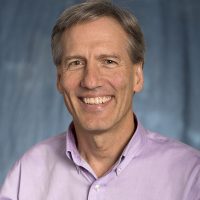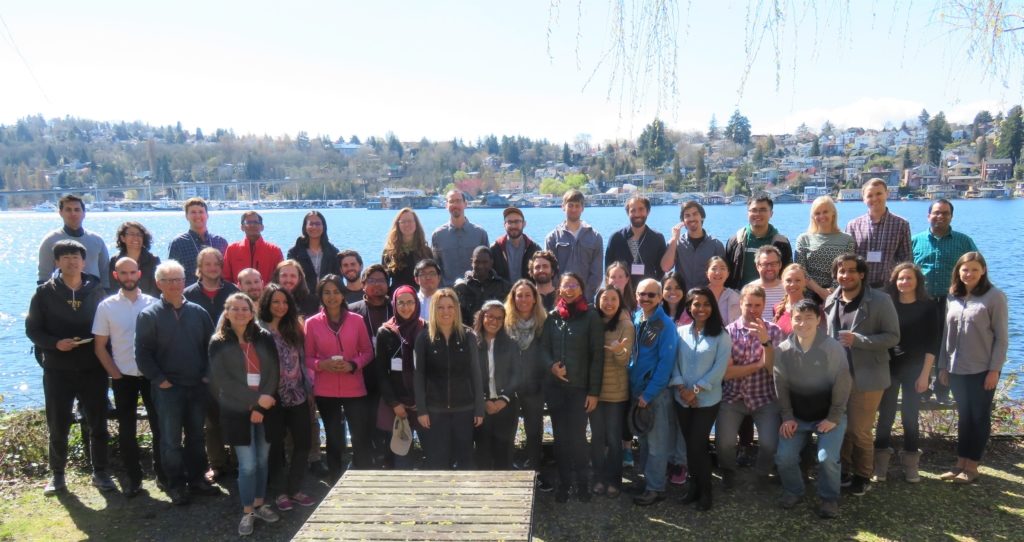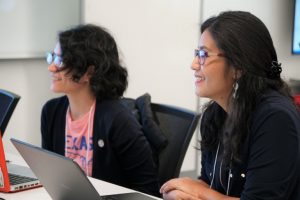NOTICE: Waterhackweek 2020 has been rescheduled to August 31-September 4, 2020, because of the novel coronavirus (COVID-19) outbreak. As of April 9, 2020, all Waterhackweek 2020 programming has been moved entirely online, so the Community Mixer will not take place in its original format.
You’re Invited!
Join Waterhackweek participants, industry professionals and the greater University of Washington Freshwater Initiative and eScience Institute community for the Waterhackweek Community Mixer on Thursday, March 26, 2020, 4:00-6:30 pm at the Intellectual House. Waterhackweek, a 5-day collaborative workshop hosted by the UW Freshwater Initiative and eScience Institute, brings together water and data scientists from around the world.
Gregory R. Miller, Vice Dean of the UW College of Engineering, will give the welcome address!
Our keynote speaker is Lisa J. Graumlich! She will share her experiences translating research into impact as Dean of the UW College of the Environment.
- Gregory R. Miller, Vice Dean of the College of Engineering and professor of Civil & Environmental Engineering
- Dean Lisa J. Graumlich, UW College of the Environment
The Community Mixer will also feature an informal poster session. All guests, including Waterhackweek participants and members of the local freshwater and data science communities, are invited to bring a physical or electronic representation of their work to inspire discussions and connections at the event. Community Mixer attendees are also invited to present a lightning talk about their work!








